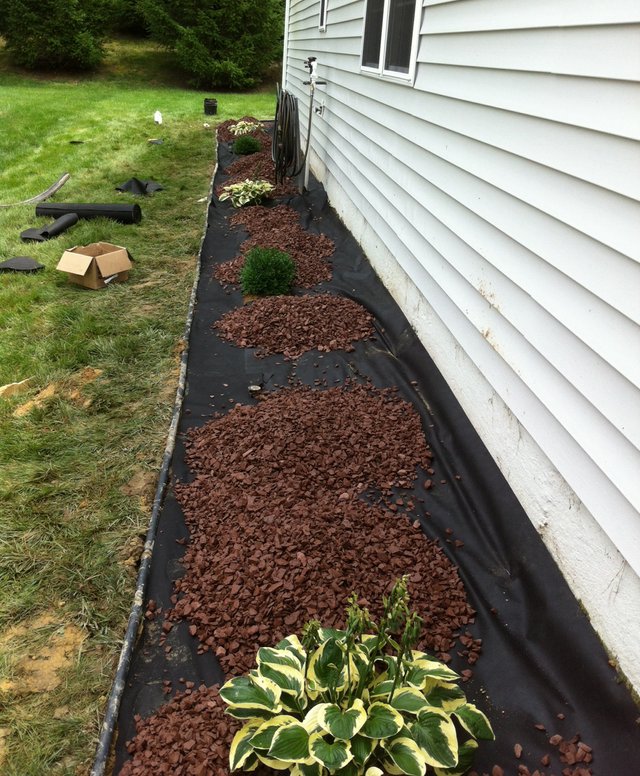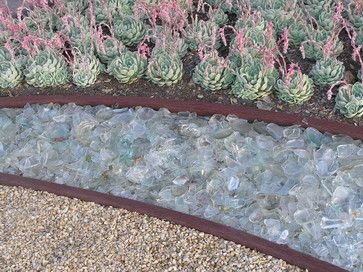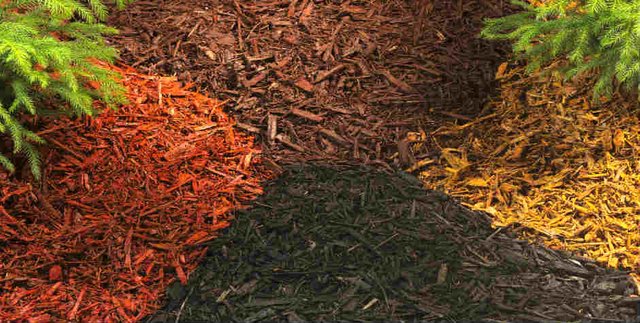Mulch is very important to your healthy landscape.

Mulch is very important to your healthy landscape.
It insulates plant roots from extreme temperatures, helps retain moisture and prevents soil erosion. When most homeowners think of mulch they consider the red, brown or black wood chips found in their local nursery and home improvement store. However, mulch may be inorganic, organic or a combination of materials. In fact the term "mulch" is a blanket term used by the agriculture and gardening industry to describe any kind of protective layer placed over soil.

The most commonly used inorganic mulch materials are fabric rolls, rubber, colored stones, and gravel. Many gardeners prefer inorganic mulch because it's longer lasting and offers more design choices and colors. The materials used for inorganic mulch slows the evaporation process which helps keep soil and roots moist longer.

Organic mulch is composed of plant or other natural materials. This is the most popular type of mulch used in colder climates because it provides excellent insulation throughout the winter. Organic materials like barks are the best choice for flower beds and shrubs. A thick mulch layer of bark can keep the soil cool in summer, warm in winter and impede weed growth. Also the natural decomposition of organic materials provides an added fertilization benefit.
However each organic substance decomposes differently, so when using organic mulch keep an eye on the pH level of your soil. As organic materials such as leaves, wood chips, straw and bark, decompose they can cause the nitrogen levels of your soil to drop. Generally, this doesn't pose a major problem as long as you supplement your soil with a nitrogen rich fertilizer.
Concerns have been raised about toxic chemicals present in some of the recycled materials used to manufacture inorganic mulch. However some mulch materials such as rubber are more efficient than the organic mulches.
In conclusion, proper mulching requires planning but is an environmentally sound approach to landscaping. Before you decide what kind of mulch to apply to your landscape, conduct some research to understand your choices and decide what material is best for your needs and soil.